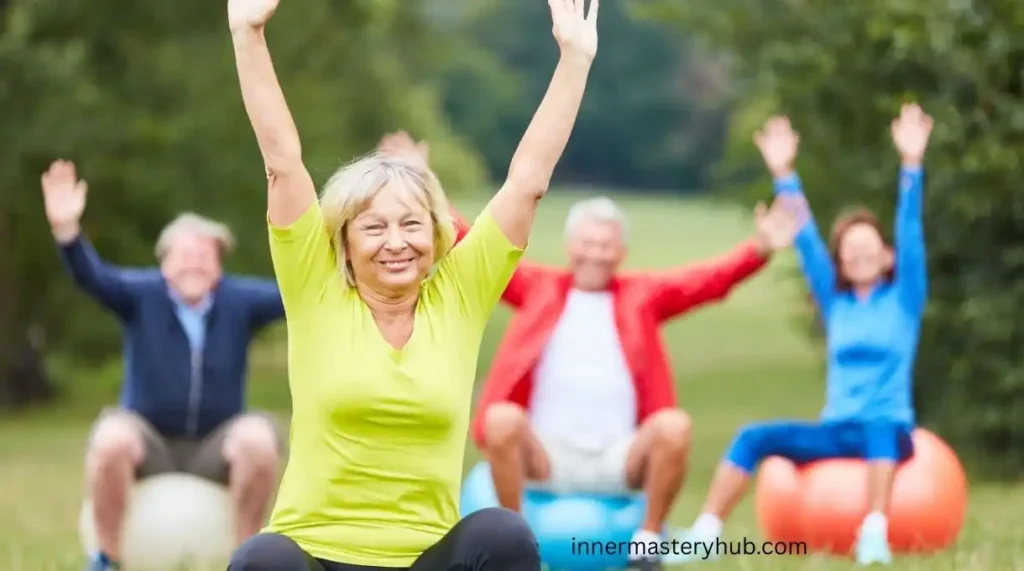Veins and Lifestyle: Simple Changes for Better Circulation

We often don’t think about our veins until something goes wrong. But did you know that your circulation is key to your overall health? Your veins are the unsung heroes that help return blood to the heart and ensure your organs get the oxygen.
But simple lifestyle changes can significantly improve circulation, making a massive difference to your veins and overall well-being. Let’s dive into how you can make simple adjustments that promote better circulation.
What is Circulation, and Why Does It Matter?
Circulation is the blood movement through your body, delivered by the heart, arteries, veins, and capillaries. Blood transports oxygen and nutrients to your tissues while also carrying away waste products.
Poor circulation can lead to a range of health problems, including fatigue, cold extremities, and more serious issues such as varicose veins and deep vein thrombosis (DVT). You can keep your circulatory system working efficiently by taking care of your veins and making lifestyle adjustments.
The Impact of Poor Circulation
Poor circulation can be more than just a slight inconvenience—it can seriously affect your daily life. When blood flow is restricted, your body doesn’t get the oxygen and nutrients it needs to function correctly. This can lead to various symptoms and health problems, making even simple tasks more challenging to manage.
Common signs and symptoms
If you’re experiencing poor circulation, you might notice things like cold hands and feet, especially in cooler weather. Swelling in your legs or ankles is another common sign. You may also feel:
– Fatigued
– Have trouble concentrating
– Experience numbness or tingling in specific areas
These symptoms make it challenging to stay active and productive, impacting both your work and personal life. Consult a vein doctor in Philadelphia to get a professional opinion.
Long-term poor circulation can also lead to more serious health conditions, such as:
– Varicose veins
– Blood clots
– Heart disease
The good news is that making lifestyle changes will help improve circulation, such as:
– Improving your diet
– Staying active
– Reducing stress
Making this change will prevent health issues from worsening.
How Lifestyle Affects Vein Health
Our daily habits play a significant role in the health of our veins and circulation. The choices we make can either support or strain our circulatory system. Understanding how lifestyle affects vein health is the first step toward making changes that can prevent issues like varicose veins or poor circulation.
Diet and Vein Health
What we put into our bodies has a direct impact on our veins. Eating a diet that’s high in processed foods, salt, and unhealthy fats can lead to:
– Weight gain
– High blood pressure
– Increased strain on the veins
On the other hand, a balanced diet can help keep blood vessels strong and blood flowing smoothly. Try changing to a diet rich in:
– Fiber
– Healthy fats
Include plenty of:
– Fruits
– Vegetables
– Whole grains
They support vein health and prevent circulation problems.
Exercise and Physical Activity
A sedentary lifestyle is one of the biggest culprits when it comes to poor circulation. Sitting or standing for long periods without moving can cause blood to pool in the legs and put extra pressure on the veins.
Regular exercise helps keep blood flowing and strengthens the muscles around the veins. Try to do some activities that assist in proper circulation, such as:
– Walking
– Cycling
– Swimming
Staying active for at least 30 minutes a day can make a noticeable difference in your vein health.
Stress and Vein Health
Stress can also affect circulation. When we’re stressed, our body goes into “alert” mode, causing blood vessels to constrict, which can reduce blood flow.
Over time, this chronic stress will lead to higher blood pressure and more pressure on the veins. Learning to manage stress can help lower the impact of stress on circulation and support overall vein health. Try practicing:
– Deep breathing
– Yoga
– Mindfulness
You can cope with stress through techniques like these.
Avoiding Long Periods of Sitting or Standing
We all know that sitting for too long is bad for our health, but did you know that standing for prolonged periods can also harm your circulation? Both static positions put a strain on your veins. If you find yourself sitting or standing for long stretches, take breaks to move around every 30 minutes. Simple activities can help improve blood flow, like:
– Stretching
– Walking
– Shifting your weight
Sleep and Circulation: Getting Rest for Your Veins
Your body must rest to recover and repair, and your veins are no exception. Quality sleep helps regulate blood pressure, allows your body to repair damaged tissues, and supports the healthy function of your circulatory system.
Aim for 7-9 hours of sleep each night, and try to sleep with your legs elevated to reduce any swelling that might occur.
Staying Hydrated: A Key to Healthy Veins
We all know that drinking water is essential, but did you know it plays a crucial role in supporting healthy veins and circulation? Staying hydrated helps your body maintain proper blood flow, which is essential for keeping your veins functioning at their best.
When you’re well-hydrated, blood flows more easily through your veins, reducing strain and supporting overall circulatory health.
How Dehydration Affects Circulation
When you don’t drink enough water, your blood becomes thicker and more viscous. This can make it harder for your veins to pump blood efficiently, leading to sluggish circulation. As a result, you might experience symptoms like:
– Swelling
– Fatigue
– Cramping
Dehydration can also put extra pressure on your veins, increasing the risk of having varicose veins or other circulation issues over time.
How Much Water Should You Drink?
The recommendation is to drink about eight 8-ounce glasses of water a day, but your hydration needs can vary depending on factors like:
– Your activity level
– Climate
– Overall health
If you’re active or spend time in hot weather, you may need more water to stay properly hydrated. Keep an eye on your body’s signals—if you’re feeling thirsty, it’s a good idea to drink up and help support your veins and circulation.
Conclusion
Better circulation isn’t just a matter of avoiding vein problems—it’s about taking control of your overall health. By making small, intentional changes to your lifestyle, you will improve the health of your veins and the efficiency of your circulatory system.
Remember, it’s never too late to start—whether it’s drinking more water, eating healthier, or simply standing up and moving more, these minor adjustments can make a big difference. So why not start today? Your veins will thank you for it!






